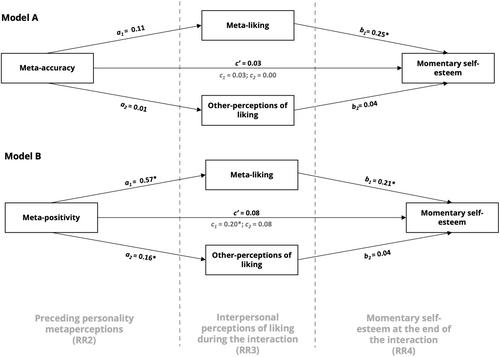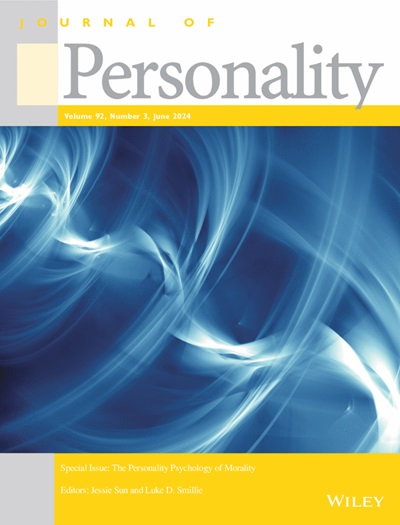Routes to momentary self-esteem in adolescence: Links with interpersonal perceptions of liking and personality metaperceptions within social interactions
Abstract
Objective
This study provides insights into the perceptual processes contributing to positive social experiences and momentary self-esteem in adolescents' initial social interactions.
Background
A person's self-esteem is shaped by their social experiences. However, little is known about which interpersonal perceptions are linked to momentary self-esteem within social interactions. Identifying two key interpersonal perceptions, we examined differential associations between an individual's meta-liking and other-perceptions of liking by interaction partners with momentary self-esteem. Further, we investigated how preceding personality metaperceptions (i.e., meta-accuracy and meta-positivity) extended these sociometer processes.
Method
The current study used round-robin data from N = 296 adolescents participating in a virtual group interaction. Social accuracy modeling was used to estimate meta-accuracy and meta-positivity of personality metaperceptions, and path models were used to test associations with interpersonal perceptions of liking and momentary self-esteem.
Results
Two main findings emerged: First, meta-liking was consistently related to higher momentary self-esteem, whereas other-perceptions of liking were not. Second, meta-positivity of personality metaperceptions was linked to higher meta-liking and indirectly contributed to higher momentary self-esteem through meta-liking.
Conclusion
These findings highlight the importance of considering different interpersonal perceptions to understand social interaction experiences.


| 公司名称 | 产品信息 | 采购帮参考价格 |
|---|
 求助内容:
求助内容: 应助结果提醒方式:
应助结果提醒方式:


